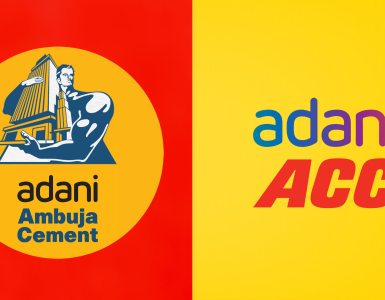The corporate affairs ministry has charted its road map for full implementation of the new Companies Act that envisages setting up Investor Education and Protection Fund Authority (IEPFA) and National Financial Reporting Authority (NFRA) within six months.
The government is already in final stages of notifying rules for IEPFA and NFRA, a quasijudicial apex body for accounting and auditing standards, also with powers to probe and review audits of companies.
Since April last year, when the Companies Act 2013 took effect, only 60% sections of the law have been notified while 187 sections related to investor protection and winding up of companies are yet to be notified.
“New bodies proposed in the Companies Act 2013 will be made functional within six months as we are already in the later stages of finalising the rules, which will be notified soon,” said a senior MCA official. NFRA will be responsible for monitoring, compliance review and oversee quality of service, enforcement and standard setting in accounting and auditing.
“The authority will have powers to carry out investigation or quality review of an audit of listed and the certain class of unlisted companies. NFRA will have the authority to conduct the investigation on the reference made by the central government or any regulator. It can suo motu start the investigation in the public interest and will also have the power to penalise and debar audit firms,” added the official, requesting anonymity.
IEPFA, which will be set up under the new Companies Act, will manage investor education and protection fund. If the amount deposited with companies is not claimed for more than seven years, it will go to IEPFA. Companies currently have aboutRs 3,500 crores in unpaid dividends, unclaimed debentures, and deposits.
It will be responsible for registering associations, institutions and professional bodies, among others, that are engaged in investor education and protection activities.
(Source:http://economictimes.indiatimes.com)
CCI clears Sun-Ranbaxy deal with some riders
India’s antitrust regulator Competition Commission of India (CCI) has approved the merger of Sun Pharmaceutical Industries Ltd and Ranbaxy Laboratories Ltd provided the two sell some overlapping brands.
The merger will create the world’s fifth-largest global specialty generics company. CCI ordered Sun and Ranbaxy to sell seven brands in which the two merged companies would have “appreciable adverse effect” on competition in India as a result of their market share, it said in a statement on its website on Monday.
CCI had earlier ordered a so-called second stage investigation into the merger of Sun Pharmaceuticals and Ranbaxy, citing the risk that the deal could harm national interest by resulting in significant market domination by the combined entity.
Telling Sun and Ranbaxy to sell some brands will help address the regulator’s concerns that the combined entity would have too much power in dictating drug prices in India.
“The order of the CCI approving the deal is an important milestone for the transaction. It revalidates our view that the Sun Pharma and Ranbaxy businesses complement each other with limited product overlap, and will offer a comprehensive product basket to enable future growth. We are pleased with the open and transparent manner in which the matter has progressed,” Dilip Shanghvi, managing director of Sun Pharma, said in a statement.
Arun Sawhney, chief executive officer and managing director of Ranbaxy, said the approval by CCI is a significant step forward and his company is confident that after closure the combined entity will enable sustainable long-term growth and deliver immense value for all stakeholders. Sun Pharma will own nearly 54.7% of the equity share capital in the new entity set to be created.
The merger is also subject to both companies divesting certain drugs. “One of the preconditions of the order is that parties divest seven products. These products constitute less than 1% of the combined entity’s revenues in India,” a Sun Pharma spokesperson said.
Sun had 5.4% of the Indian pharmaceutical market in the 12 months ended October, according to data from AIOCD Pharmasofttech AWACS Pvt. Ltd, a Mumbai-based market research company. Ranbaxy had 3.6% of the market.
In the 12 months to October, sales of the seven products CCI told the companies to sell totalled `137 crores, according to AIOCD.
The antitrust watchdog suggested that Sun Pharma divest all products containing Tamsulosin + Tolterodine that is currently marketed and supplied under the Tablet brand name.
It has also suggested that Ranbaxy divests all products containing Leuprorelin that are currently marketed and supplied under the brand name Eligard.
“In the event, the divestiture of distribution rights of Eligard is not achieved within the first divestiture period, Sun Pharma shall divest its products containing Leuprorelin currently marketed and supplied under Sun Pharma’s brand name Lupride,” CCI said.
The first divestiture has to be done within six months from the effective date. The effective date is the date of the order, which is 5 December.
Ranbaxy’s 46.79% equity shareholding in Zenotech Ltd, a listed company, will also vest with Sun Pharma.
Within a week of the effective date, 5 December, each company is required to appoint a senior management level employee to ensure that the divested products have “economic viability, marketability and competitiveness” till the closing date. The closing date, as defined in its order, is the date when the legal title of the divested products move to the purchaser. CCI has also asked the new entity to not acquire any direct or indirect “influence” in the divested products for five years from the closing date.
A senior pharma consultant, who spoke on condition of anonymity, said the order is favourable for the two companies. “We were expecting a more stringent order from CCI.” This person added that CCI “has left out much more drugs from its radar while extending a conditional approval” and that this could affect consumers. Surjit Pal, an analyst at domestic brokerage Prabhudas Lilladher Pvt. Ltd said CCI has been consistent from the beginning on the approval for Sun Pharma-Ranbaxy deal. “But the challenge will be to find buyers for these seven drugs as this deal will get final approval only after the completion of divestment,” Pal added.
(Source: http://www.livemint.com )
Domestic banks surge in M&A league table
Homegrown investment banks have overtaken many global giants in the mergers and acquisitions (M&A) league table this year as domestic deals took prominence over cross-border transactions. M&A in India has been long dominated by international banks that have consistently captured the top five positions in annual rankings. But for the first time two homegrown investment banks have broken into this club this year with ICICI Securities and Kotak Investment Banking, respectively, placed at fourth and fifth positions, according to Bloomberg data.
These are closely followed by JM Financial at sixth place. This puts them ahead of Goldman Sachs, Morgan Stanley, Standard Chartered, JPMorgan, HSBC, and UBS. The top three positions, however, are still with international heavyweights, Citi, EY and Bank of America Merrill Lynch.
“It captures the changes that have taken place since the election results were announced. The change in the economic environment has boosted the confidence of local companies,” said Sourav Mallik, senior executive director and head of M&A at Kotak Investment Bank. His bank advised on 15 transactions worth over $4.4 billion, including group firm Kotak Mahindra Bank’s acquisition of ING Vysya Bank in a $2.4billion deal.
While global banks have an edge in crossborder transactions, domestic players claim to have greater bonding with local companies. “Indian clients are more comfortable with domestic banks in their understanding of the local environment. Even the inbound deals have a strong domestic leg and investors coming in want to have the better understanding of the market, so domestic banks have an edge,” said Ajay Saraf, executive director, ICICI Securities, which advised Ranbaxy during its $4.1billion acquisition by Sun Pharmaceuticals.
The year saw over $87.5 billion in M&A transactions but it did not have any outbound deal of significance. Inbound deals included players like Diageo and Vodafone increasing their stakes, respectively, in United Spirits and Vodafone India. Other inbound deals of significance were in e-commerce, where existing investors pumped in about $3 billion, including Amazon’s buying $1.2 billion worth of equity in fashion e-tailer Jabong. But e-commerce players did not involve rain makers in these transactions.
This left the M&A market open to domestic consolidation, which saw stressed assets changing hands. The power sector has seen M&A worth about $4 billion in the year with Adani Power, JSW Energy and Tata Power buying assets from highly leveraged players like Lanco Infratech and JP Power Ventures. “We capitalised on the consolidation theme,” said Atul Mehra, joint head and coCEO of investment banking at JM Financial, which advised Reliance Industries on its acquisition of Network18 Media & Investments and TV18 Broadcast. It advised in over 10 transactions worth $4.3 billion during the year.
“The opportunity was there because of a fragile equity market and the need for deleveraging balance sheets. This facilitated consolidation among domestic players and for MNCs to further consolidate their holdings and business interests,” Mehra added. But the success of local banks also owes itself to their ability to advise on large as well as small deals.
This helped them rank over many global banks that target only big deals. “Large banks have a fee structure with a minimum threshold which does not suit small deals unless it is for a strategic reason to support a client,” said Raj Balakrishnan, head of investment banking at Bank of America Merrill Lynch, which advised on six M&A deals worth $7.7 billion during the year, including Diageo’s $3.1 billion acquisition of additional stakes in United Spirits.
The investment banking arm of Ernst & Young, the global advisory firm, ranked second with 31 transactions worth $8.3 billion. Citi topped the league table with only five deals worth $8.4 billion, displaying its continued strength in high value deals.
“After an economic slowdown usually things first start picking up in the secondary market, then it comes to capital raising in the primary market followed by domestic M&A and inbound deals, and finally outbound acquisitions,” said Balakrishnan. “So we are hopeful that large outbound deals will finally come,” he added.
(Source: http://www.businessstandard.com)




